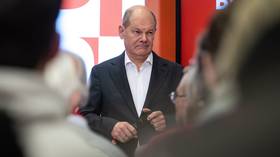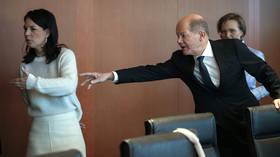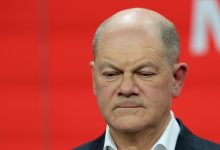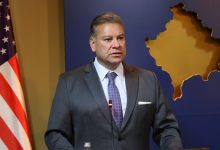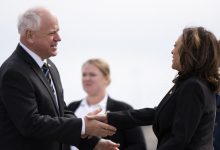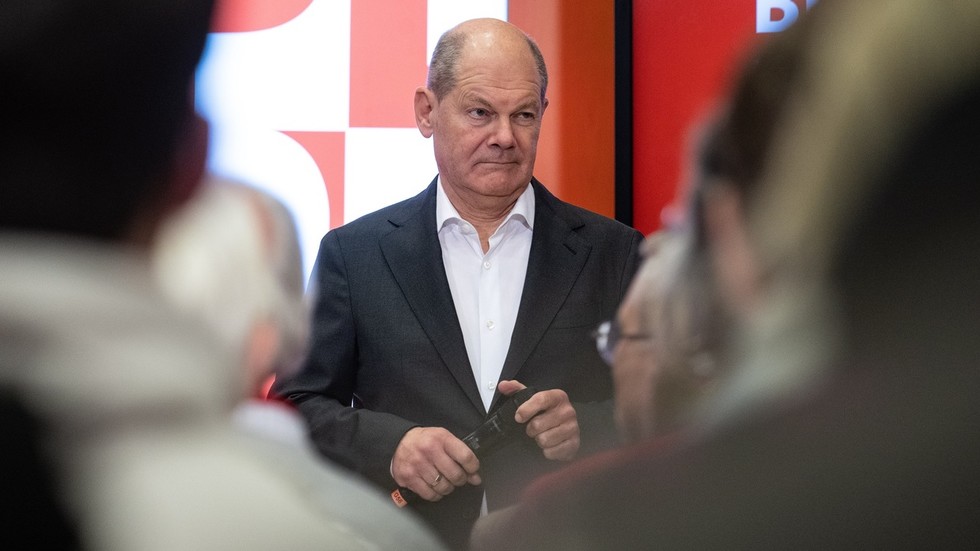
The chancellor has pushed back against critics who accuse him of blocking a €3 billion assistance package for Kiev
FILE PHOTO: German Chancellor Olaf Scholz attends a campaign event in Frankfurt on January 20, 2025. © Boris Roessler / dpa German Chancellor Olaf Scholz has accused his critics of deceiving voters about a proposed €3 billion ($3.1 billion) assistance package for Kiev and his role in preventing its delivery. Senior officials have blamed Scholz for delays in approving the emergency aid, which was proposed by Foreign Minister Annalena Baerbock and Defense Minister Boris Pistorius. “The German people are being lied to” by those who refuse to address how the package would be funded, Scholz claimed in an interview with the Frankfurter Allgemeine Zeitung newspaper on Monday. He highlighted his government’s contributions to Ukraine despite ongoing budgetary problems. The issue of Ukraine aid is a focal point of political debates ahead of the general election in Germany next month. The Social Democratic Party (SPD) has nominated Scholz as its candidate to form the next government, after Pistorius declined to seek the party’s nomination despite his popularity exceeding the chancellor’s in some polls.
Read more Baerbock, a senior member of the Green Party, complained last week about unnamed officials prioritizing national interests over “responsibility for securing Europe’s peace” to appeal to voters. Her party was part of the ruling coalition which collapsed last year over a conflict with the SPD and the Free Democratic Party (FDP) over spending priorities. Friedrich Merz, the chancellorship candidate from the opposition Christian Democrats, has likewise criticized Scholz for not providing more aid to Ukraine. Merz is currently seen as the frontrunner for chancellor, with the Christian Democratic Union/Christian Social Union alliance leading in opinion polls. Alternative for Germany (AfD), an anti-immigration party, stands out among major political players in its opposition to funding Kiev’s fight against Moscow, and has called for the resumption of purchases of cheap Russian energy to kickstart the ailing German economy. It currently trails the Christian Democrats in the polls, as MPs reportedly mull banning it for allegedly being a threat to German democracy. Despite disagreements within the ruling coalition over future Ukraine aid, Germany remains second only to the US among military donors to Kiev, having provided around €11 billion from January 2022 to October 2024, according to the Kiel Institute for the World Economy.